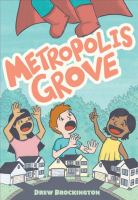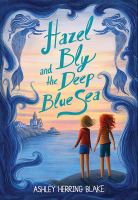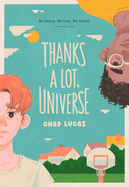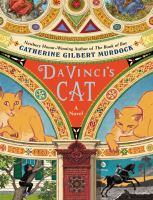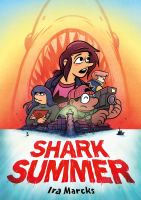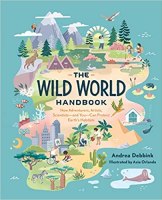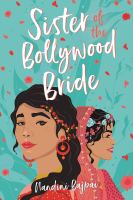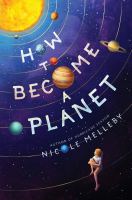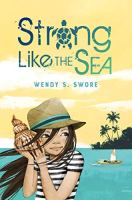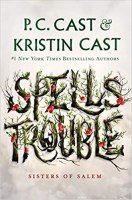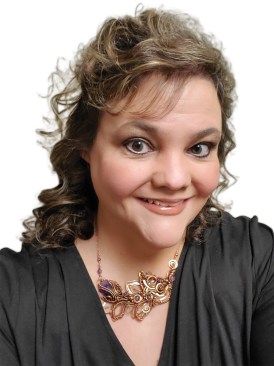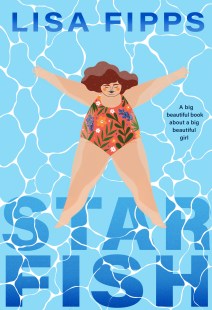 I’m jumping up and down because I get to interview Ali Standish for the launch of her sixth book, The Mending Summer. Ali is also the author of the critically acclaimed The Ethan I Was Before, How to Disappear Completely, August Isle, The Climbers and Bad Bella. She grew up in North Carolina and spent several years as an educator in the Washington, DC, public school system. Ali has an MFA in children’s writing from Hollins University and an MPhil in children’s literature from the University of Cambridge. You can visit her online at www.alistandish.com
I’m jumping up and down because I get to interview Ali Standish for the launch of her sixth book, The Mending Summer. Ali is also the author of the critically acclaimed The Ethan I Was Before, How to Disappear Completely, August Isle, The Climbers and Bad Bella. She grew up in North Carolina and spent several years as an educator in the Washington, DC, public school system. Ali has an MFA in children’s writing from Hollins University and an MPhil in children’s literature from the University of Cambridge. You can visit her online at www.alistandish.com
Before our discussion officially gets underway, I want to make one thing clear. I’m not an unbiased interviewer. I had the great honor to serve as Ali’s MFA thesis advisor at Hollins University Summer Graduate Program in Children’s Literature & Writing. It gives me great joy to speak with her now about new middle grade, The Mending Summer.
- Water plays a central role as a healer and teacher in The Mending Summer. Why did you choose a lake as a setting? How did lakes figure into your own childhood?
What a great question, Hillary! And thank you so much for having me. I am no unbiased interviewee either.
I think you’re absolutely right that the lake both heals and teaches. That was my experience attending camp each summer on the shores of Lake Wylie, SC. Being around a body of water, be it a lake, a river or an ocean, has always been both uplifting and humbling for me. Water reminds us of how beautiful and wonderous life can be—what’s more majestic than watching the sun set over the sea?—but it’s also something we can’t control or tame, or really even fully understand. It forces us to let go of the idea that we have total agency over our own lives. In children’s literature, we tend to want to emphasize the power of agency, but for children like Georgia whose lives have spun out of control, it’s important to show that there are things, like another person’s addiction, that we don’t have power over. When we relinquish that idea, we can start to focus on what we can control, which is how we treat ourselves.
- Georgia’s father is an alcoholic, whose drinking increasingly interferes with his ability to be a reliable parent. You don’t shirk from showing us scenes when he becomes “the Shadow Man,” weaving to the front door or even passed out. And yet, you offer the reader many moments, often in flashback, of magical father/daughter engagement. When someone is suffering from alcoholism it’s easy to fall into the trap of defining them only by their disease. You carefully weave in Daddy’s interests from his passion for music to his love of stories. How did you balance this portrait so carefully?
I was very intentional about wanting to show the essence of Daddy’s character—funny, loving, creative—instead of making him into a caricature of an alcoholic or a simple villain. Because my own family members have struggled with alcoholism, and I’ve had many years to process that, I had a lot of empathy for Georgia’s daddy. I think anyone who has loved an alcoholic or an addict has that empathy, even if it is buried under feelings of betrayal, anger, or loss. We know the person underneath the disease, and it’s important to continue to honor, celebrate, and love that individual, even if it needs to be from a distance. Equally, though, it was important to me not to shy away from the more painful scenes where we see how much alcoholism has changed Daddy, or minimize the impact it has on Georgia.
I hope that in showing him from both those angles, readers who may be impacted by addictions in their own family might feel some comfort. If alcoholism can turn a man like Daddy into the Shadow Man, then maybe they will feel less shame and confusion about why it’s happening to their loved ones. Alcoholism can affect anyone.
- The Mending Summer braids together elements of mystery, adventure, and fantasy, while still giving quite a bit of weight to Georgia’s shifting feelings. She’s quite emotionally intelligent and sensitive. When you were Georgia’s age, were you aware of your own conflicting feelings? How did you figure out how much time to give to Georgia’s interior life versus the exterior action?
Kids of alcoholics often develop that kind of emotional intelligence early on as a defense mechanism. It’s important to be able to read the room, the situation, the person sitting across from you, so that you can anticipate what’s coming next. I think it took me longer than Georgia to turn that sensitivity inward. It wasn’t until after my family members had been in recovery for a while and our family had stabilized that I was able to understand my own feelings around things. And what I found was that I had swung between healthy ways of dealing with things (focusing on my own achievements, hobbies, relationships with friends) and unhealthy ways (not reaching out for support or sharing what was going on, but instead turning my turbulent emotions inward). In The Mending Summer, that tug-of-war becomes concrete in the form of the wishing lake, and the two children Georgia meets there. Externalizing the struggle in that way meant that there was plenty of room for action and adventure, so that the story (I hope!) didn’t become too weighed down by Georgia’s internal conflict.
- Aunt Marigold, with whom Georgia stays with in the country during her mending summer, is a potter. Not only does pottery work as a powerful metaphor but eventually Georgia learns how to shape her own clay pieces. How did you come to weave this element into the book?
At first, I actually experimented with Aunt Marigold teaching Georgia piano, but that didn’t feel quite right. With pottery, you are creating a physical object out of a lump of mud (okay not exactly but you get the gist!). That power to create something whole becomes an important counterbalance to Georgia’s home life, which is fracturing into pieces. I experimented with pottery a few summers at camp and always wished I had been able to do more with it. Pottery also has a long history in North Carolina, where I live and where the book is set. Seagrove, NC, is the largest community of active potters in the country!
- Aunt Marigold, who is actually a great aunt, is one of my favorite characters. She “walked barefoot through the garden and read William Faulkner at the table and wore overalls like a man.” Did you base Aunt Marigold on a real person? If so, I want to meet her!
Me too! Alas, she is not based on a real person, though I did have an image of Sissy Spacek in my mind when I was writing her… I do like to think that I have my own version of Aunt Marigold inside of me—a strong woman who is unapologetic about who she is, and who can be both surprisingly tender and fiercely protective. We all deserve an Aunt Marigold to give us the resolve to keep going when times get tough.
- A lonely looking gravestone, a mystery room, odd sounds, and eerie characters all figure into this story. There were places I found myself turning on the reading lamp a little brighter. How did you feel about scary stories as a kid? How did you manage to weave in some many spooky moments and yet have the overall story feel uplifting?
I LOVED spooky stories as a kid. Still do! I remember how devastated I was when I first realized that I was too old to really enjoy Goosebumps anymore. I had no idea how to fill the void! I think many young readers are drawn to these kinds of mysteries that carry a hint of danger. My stories are usually about a kid who is struggling with something tough, but they always have room for a few southern gothic tropes. But those locked doors and spooky gravestones always have a human story behind them which, once uncovered, usually have something in them to support the protagonist on their journey to healing. So…come for the scares, stay for the character development—hah!
- The story includes quite a bit of adventure and some thrilling moments. Did you know in advance that this story would go there? Or did it take you by surprise?
I did know that it would go there. What happens at the lake mirrors what is happening in Georgia’s psyche. Since she went to some dark places, it was only natural that the lake would, too. Of course, the adventures start out as quite exciting and fun, and that was one of the ways that I tried to keep balance in the book between exploring the tough stuff but threading it through with the kind of mystery and adventure I loved reading as a middle grader.
- Nature is a both fearsome and healing. In many ways, I was getting some Bridge to Terabithia I’m assuming Katherine Patterson is an influence. I’d be curious to learn a little bit about some of your favorite middle grade books and why you love them.
I will happily take that comparison, thank you very much! (No take-backsies.) Bridge to Terabithia was a hugely influential book for me. You know how sometimes you see a tree that grows around a large stone, or some man-made object? I feel like my soul kind of grew around that book. It even inspired an entire fantasy world in my backyard—Narbithia (The Lion, the Witch, and the Wardrobe was also a favorite!). That book gave me a blueprint for how to exercise my imagination, while also showing me the supreme power of story to make readers feel.
More recent favorites include Rebecca Stead’s When You Reach Me(okay, not that recent, but a perfectly plotted book, in my humble opinion, and one that any aspiring writer can learn so much from) and this year’s Newbery winner, Tae Keller’s When You Trap a Tiger. In fact, I had the honor of blurbing the latter (and will continue to mention this for the rest of my life when given the most minuscule opportunity). When You Trap a Tiger is also a book that blurs the lines between magic and a child’s inner-turmoil. It weaves together Korean folklore with a universal story of family history, love and loss in a beautiful, haunting way.
- Are you an outliner, panster or a hybrid writer?
I write books like Boomers drive cars. (At least the Boomers in my family!) I know where I want to start and where I want to go, and I’m pretty sure I know how to do it, but I’m sure as heck not going to bother with a GPS. So there will inevitably be some wrong cars (and some choice language) but eventually, I usually find my way.
- Anything else you’d like readers to know about The Mending Summer?
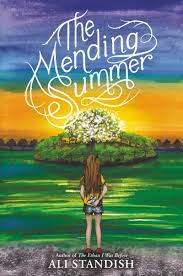
Importantly, the cast includes a grumpy cow named Ruby. Why does no one mention her?!
Just kidding, mostly I just want educators, librarians, and young readers to know that there are stories out there for kids who are impacted by alcoholism and addiction. Hopeful, engaging stories that might make them feel less alone and that might help guide them toward making healthy choices, rather than self-destructive ones. And while they deal with serious issues, these stories are necessary to keep on classroom and library bookshelves, because you never know which child might be walking into school each morning with this weighing on their shoulders.
Hillary Homzie is the author of the Ellie May chapter book series (Charlesbridge, 2018), Apple Pie Promises (Sky Pony/Swirl, 2018), Pumpkin Spice Secrets (Sky Pony/Swirl, 2017), Queen of Likes (Simon & Schuster MIX 2016), The Hot List (Simon & Schuster MIX 2011) and Things Are Gonna Be Ugly (Simon & Schuster, 2009) as well as the Alien Clones From Outer Space (Simon & Schuster Aladdin 2002) chapter book series. She’s also a contributor to the Kate the Chemist middle grade series (Philomel Books/Penguin Random House). During the year, Hillary teaches at Sonoma State University and in the summer she teaches in the graduate program in childrens’ literature, writing and illustration at Hollins University. She also is an instructor for the Children’s Book Academy. She can be found at hillaryhomzie.com and on her Facebook page as well as on Twitter.

